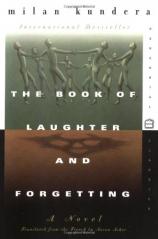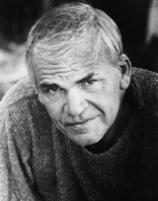The Book of Laughter and Forgetting
About the Book
The Book of Laughter and Forgetting
With its seven interrelated parts--rich in story, character, and imaginative range--The Book of Laughter and Forgetting (1978) is the novel that brought Czech-born Milan Kundera his first big international success. Aaron Asher's new translation, commissioned and monitored by Kundera himself, conveys beautifully into English the nuances and the tone of the author's original text. "Part fairy tale, part literary criticism, part political tract, part musicology, and part autobiography" (as the New York Times described it), The Book of Laughter and Forgetting is, above all, the wonderfully integrated stories of men and women living in a world of public oppression and private longings, a world in which history may be rewritten overnight and in which love may fall victim to either political intrusion or personal betrayal.
The seven parts of Kundera's novel explore different aspects of human existence in the twentieth century, particularly as they are affected by life in the police state of the narrator's fictionalized Bohemia. In 1971, three years after the Russian occupation of his homeland, Mirek--under surveillance by the not-so-secret police--seeks to retrieve his love letters from his former lover, Zdena. Marketa and her husband, Karel, must cope with Karel's increasingly childlike mother while at the same time dealing with the amoral Eva and memories of past desires. At a small French summer school, two American girls learn the lessons of laughter. Displaced to a provincial town in Western Europe, Tamina ("all the other stories are variations on her own story") urgently tries to retrieve memories of her husband and their past together in Bohemia, memories recorded in notebooks that she left behind at her mother-in-law's house in Prague. And forty-five-year-old Jan prepares to cross several borders--geographical, existential, erotic--for a new life in the United States.
The Book of Laughter and Forgetting closes with a group of naked men and women on an isolated beach exchanging opinions about the fate of Western civilization and the liberation of humanity, opinions that "Jan had heard ten, twenty, thirty, a hundred, five hundred, a thousand times before." His own attempt to obliterate the border between past and present, and to re-experience the innocent and blissful mystery of his youth, fails. In the end, he finds himself squarely in the land of forgetting.
The Book of Laughter and Forgetting
- Publication Date: April 7, 1999
- Paperback: 320 pages
- Publisher: Harper Perennial Modern Classics
- ISBN-10: 0060932147
- ISBN-13: 9780060932145









